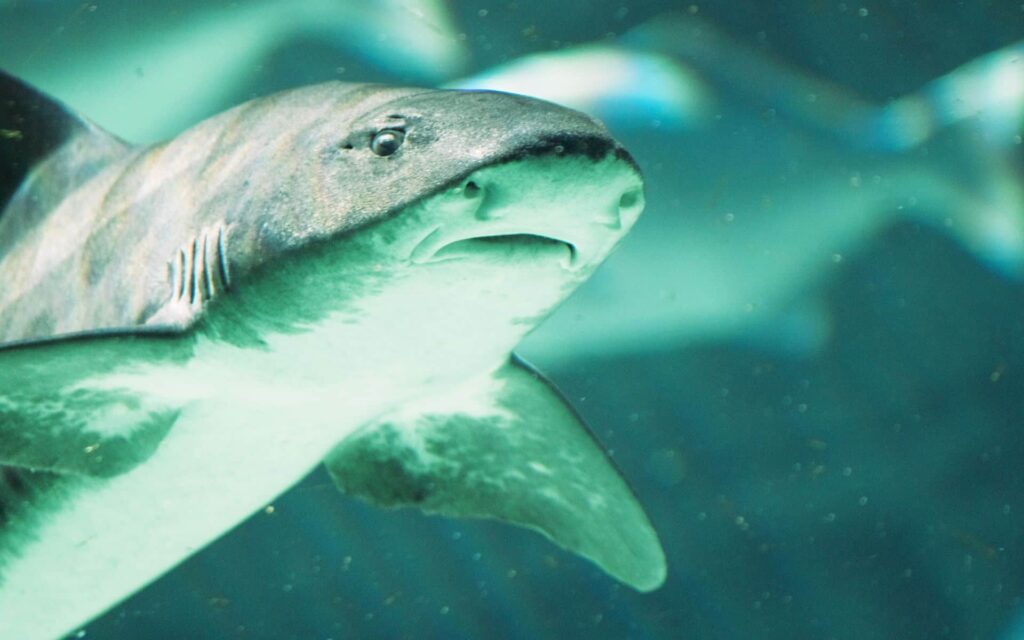Sharks’ teeth, renowned for their sharpness and regenerative capabilities, play a crucial role in their predatory success. However, recent studies highlight a growing concern about the impact of ocean acidification on these vital structures. Research conducted by scientists, including those featured in Science Alert, suggests that rising levels of acidity in the oceans could alter the integrity of shark teeth over time.
As ocean conditions continue to change, the future of these apex predators may be at risk, but the full extent of the potential effects remains uncertain. More research is needed to understand how these changes could influence marine ecosystems.
What is Ocean Acidification?
Ocean acidification refers to the process by which seawater becomes more acidic due to the absorption of excess carbon dioxide (CO2) from the atmosphere. Since the Industrial Revolution, human activities have significantly increased CO2 emissions, much of which is absorbed by the oceans. In fact, around 30% of the CO2 we release ends up in the sea.
While this might sound like a good thing—since the oceans are helping to mitigate climate change—the downside is that the increased acidity can have severe consequences for marine life. This phenomenon is gradually altering the chemistry of our oceans, and with it, the lives of countless species.
The change in pH levels (the measure of acidity) causes a cascade of problems for marine organisms. As the pH drops, it makes it more difficult for creatures that rely on calcium carbonate (like corals, shellfish, and certain plankton) to build their skeletons or shells.
Without these essential structures, they struggle to survive. But the issue goes beyond these well-known species; it also threatens the survival of apex predators like sharks, which we don’t often associate with being vulnerable to environmental changes.
Sharks and the Hidden Threat of Acidification
We often think of sharks as being near the top of the food chain, tough and invincible. However, recent studies suggest that even sharks might not be immune to the effects of ocean acidification. Sharks, with their fearsome teeth and streamlined bodies, are a marvel of evolutionary design. But their teeth—designed to regenerate constantly and efficiently tear through prey—are not impervious to the increasingly acidic waters.
Researchers from Heinrich Heine University in Germany have studied the effects of lower pH levels on shark teeth, focusing on blacktip reef sharks. These sharks’ teeth, made of highly mineralized phosphates, are sharp and constantly growing. Yet, as ocean acidity increases, these teeth become corroded.

In experiments, researchers observed cracks, holes, and degradation in teeth exposed to more acidic conditions. Interestingly, these teeth also showed an increase in circumference—not because they were growing, but due to irregularities in their structure. This might theoretically make them more efficient at cutting, but it also makes them more fragile, leaving sharks vulnerable to damage when they try to catch prey.
In total, over 600 discarded teeth from blacktip reef sharks were collected for the study, giving scientists a substantial sample size to analyze.


This is just one example of how the broader issue of ocean acidification impacts the food chain. While sharks can often compensate for individual tooth loss, their weakened teeth could lead to problems in the long term. If these apex predators can’t effectively hunt, it could disrupt marine ecosystems and the species that depend on them.
The Bigger Picture: Ecosystem Collapse
The threat of ocean acidification isn’t just about individual species. As more marine organisms are impacted—whether it’s corals struggling to build their reefs, or fish species being affected by the altered pH levels—the entire ecosystem is at risk. Coral reefs, which support over 25% of marine life, are especially vulnerable. The degradation of coral reefs threatens not only the species living in them but also human industries that rely on healthy oceans, like fishing and tourism.
In the near future, the average ocean pH could drop from 8.1 to 7.3 by the year 2300, making the seas nearly ten times more acidic than they are today.
The potential for cascading effects in the food chain is enormous. If plankton and shellfish populations decline due to acidification, it could affect everything from fish populations to the larger predators, including sharks, that rely on them. Essentially, the acidification of our oceans is a ticking time bomb, with consequences that are still not fully understood. And though some species, like sharks, may adapt over time, it’s clear that the oceanic ecosystem as a whole is at great risk.

